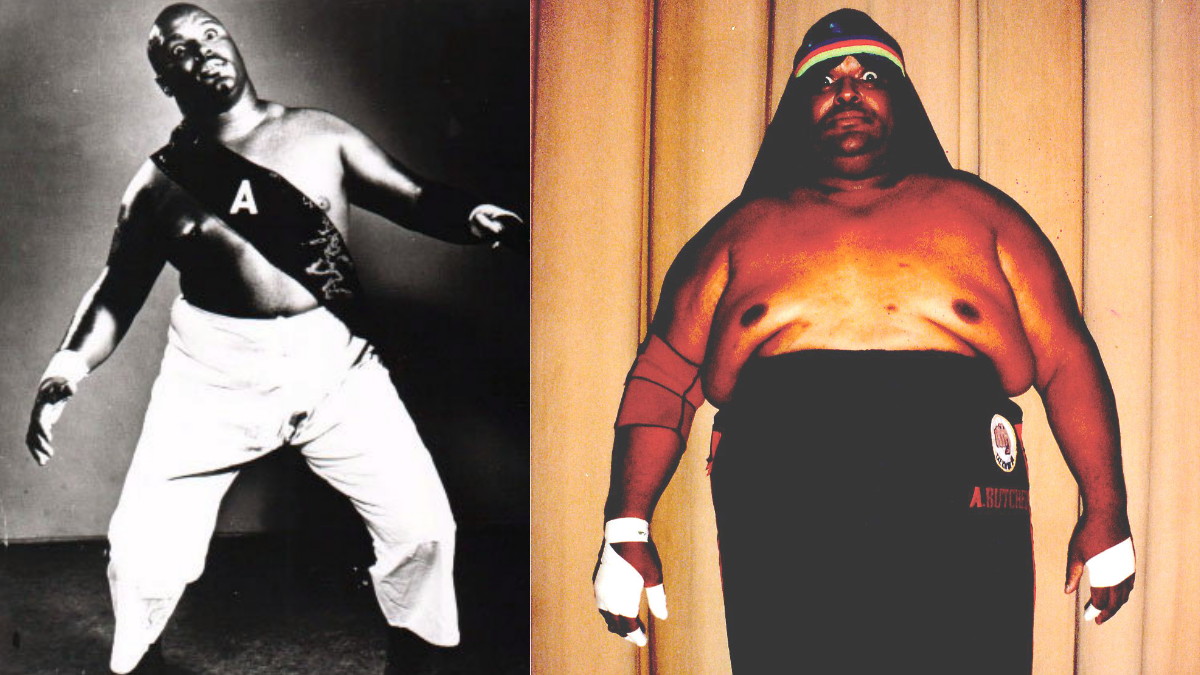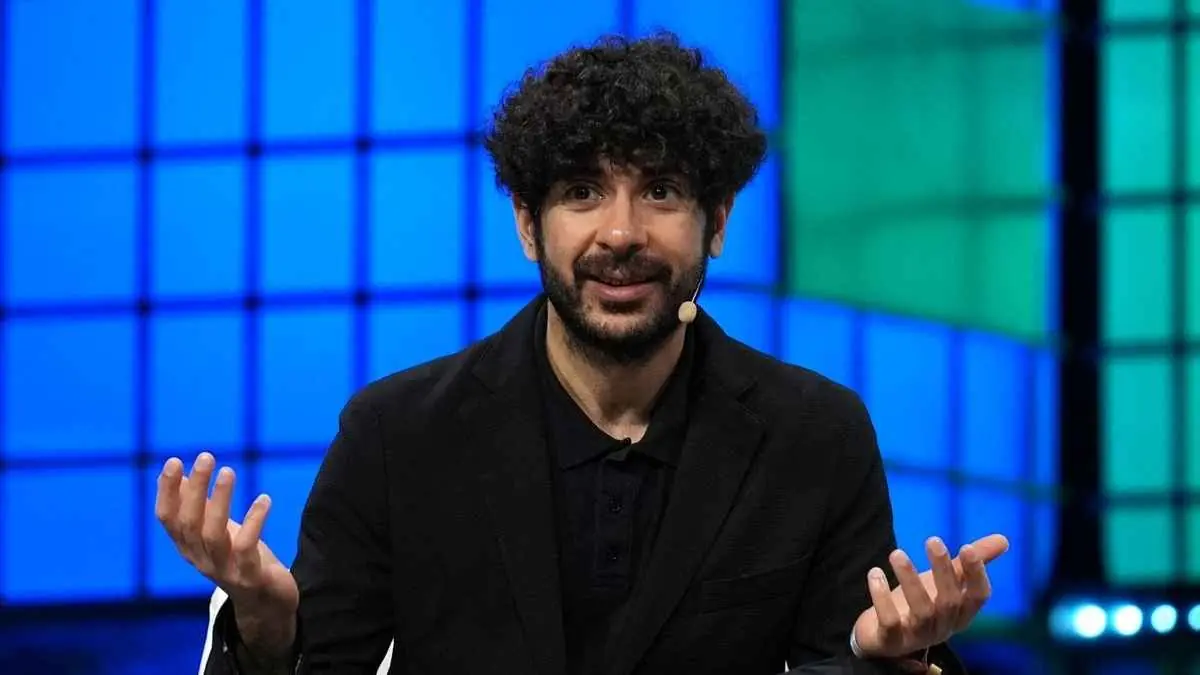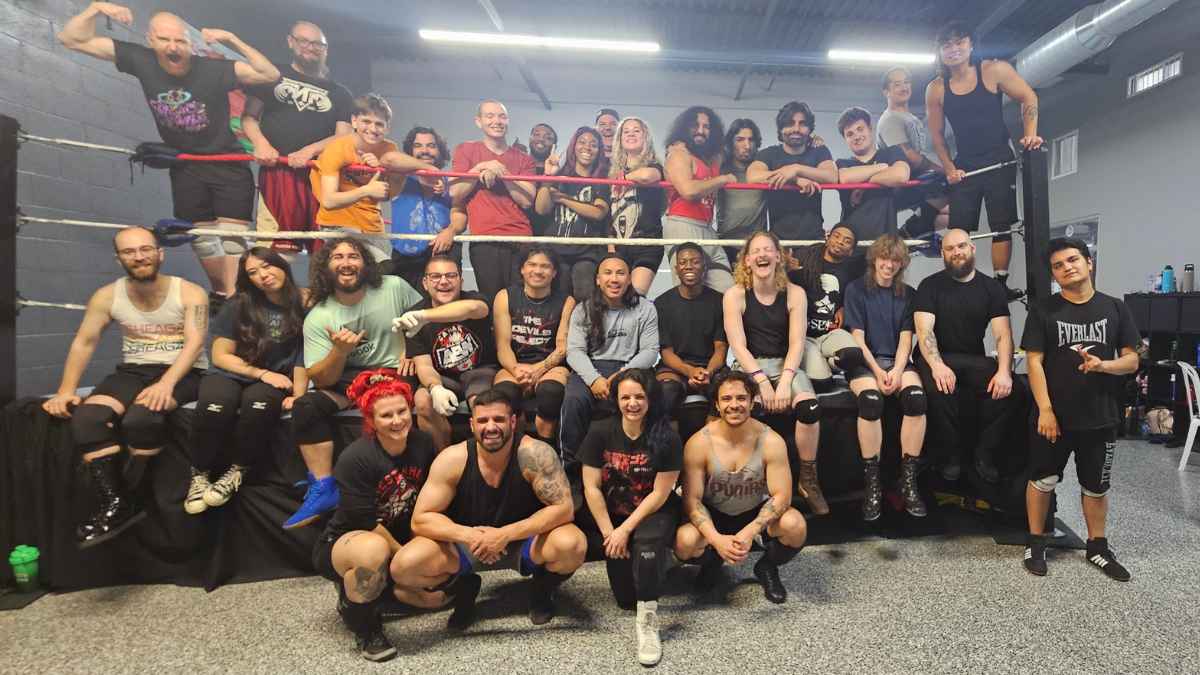The one and only Abdullah the Butcher took the hot seat last week to respond to some questions from his fans, courtesy of SLAM! Wrestling.
In character, Abdullah the Butcher is one of the meanest, nastiest, blood-thirsty individuals of all time.
As much of a thrill as it was for him to spill the blood of his opponents, he always seemed to love the taste of his own blood, as seen in many of his matches, earning him the moniker “the madman from Sudan.”
Outside the ring, he is the nicest gentleman you will ever meet. He was very courteous and respectful and would even apologize in advance, before using foul language. He’s been wrestling for almost five decades and still remains a huge draw.
Abdullah was nice enough to give us at SLAM! Wrestling a moment of his time to answer your questions and we are very appreciative for it.
Q: What are your memories of wrestling in Toronto for Jack Tunney? (Bill McMillan)
A: Those were the good days. Jack Tunney used to bring in all the top guys from all over. He used to have a chair and every time a new person would come in, he would have them sit down in the chair to be remembered and when you sit down in the chair, you’d get shocked, like an electric chair.
Q: One of my favourite articles about Abdullah the Butcher is from Sports Review Wrestling (January 1984). The title is: The 10-year chase is over–Andre finally corners Abdullah, and it includes some great photos of Abdullah and Andre the Giant (taken by Bill Apter and Tony Lanza) taken from a match at Hiram Bithorn Stadium, Puerto Rico in front of an audience of 25, 000. Apparently, they only wrestled one time before in Montreal in 1972. I’m wondering if Abdullah can share some memories of his battles with Andre the Giant, and if there were any other matches between the two, other than the ones I mentioned? (Marshall Ward)
A: When I wrestled Andre the Giant, it was in San Juan, Puerto Rico. We had a hell of a match. And I wrestled him in Montreal. I wrestled him in Tokyo. We had some great matches. But if we were to ever wrestle in New York or any other place, we could have drawn the biggest crowds in history, but it never happened.

Q: Bruiser Brody was well known for throwing potatoes and your matches with Bruiser Brody are legendary. Did you ever find yourself in a spot where the other wrestler threw a potato on you or tried to shoot? (Bill McMillan)
A: A lot of wrestlers tried to shoot on me, but they couldn’t handle me. A person like Bruiser Brody, if he didn’t like you, he’d kick you to death. But it never happened to me though.
Q: You still worked for Carlos Colon after Bruiser Brody’s death. What stopped you from leaving? (Courtney Marshall)
A: When Bruiser Brody got murdered, it’s a business. Everybody dies every day. You don’t stop because somebody got killed or somebody got murdered. And that’s why I stayed in Puerto Rico.
Q: What were your thoughts on the original ECW and the fans there? (David Read)
A: They had the best matches. They had a lot of stuff that you never see, like when they used to jump from balconies and from trucks. Barb wire matches, cage matches, tack matches. There was a lot of it. If he (Paul Heyman) would have kept going by himself, it would have still been going. Because people used to talk about ECW. They used to say “that is the real wrestling.” The fans were great fans. They liked violence. Everybody likes violence.
Q: I have multiple DVDs of Abdullah’s matches spanning the ’70s, ’80s, ’90s to the present. One of my favourite matches is a battle between him and Hulk Hogan in Japan. I’m wondering how many times Abdullah wrestled Hogan in his career and if the rumours are true that at one time, there were plans for him to come into the WWF and become a contender for Hogan’s WWF World Championship in the mid ‘80s? (Colin Hamilton)
A: Well that was true, but there were a lot of people up there who were scared of me. You know, wrestlers who did not want me to come to New York at the time and that’s why I never got into New York to wrestle Hogan. But if I’d have worked Hogan in New York, we could have sold out every place. We were in Japan, me and Hogan, and we did business for I think two weeks, selling out. We had great matches. I’m an outlaw and a lot of the boys who were jealous of me, didn’t want me to come to New York, so they knocked me.
Q: I’ve always been curious if Abdullah the Butcher has ever wrestled Ric Flair? If I recall correctly, I remember reading a wrestling magazine in the ‘80s with a quote from Ric Flair, saying “I will never wrestle Abdullah the Butcher.” (Ralph Walton)
A: I could have made a lot of money with Ric Flair. I wrestled Ric Flair before he won his first championship belt. I think I wrestled him in Texas. Why he would never wrestle me? Because he knew that I could draw a lot of money with him, but he wouldn’t wrestle me no place, because I was a different wrestler and I was an outlaw and I would never kiss his ass, and that’s why I never wrestled him.
Q: Mick Foley has always spoken and written about Abdullah in such a positive way and clearly admires him both professionally and personally. I’m wondering if Abdullah considers Mick Foley a friend, and who else he considers his friends in the business? (Dominic DeMott)
A: Mick is a good friend in my opinion. You don’t have too many friends, but he’s a good friend and anytime I went some place, I always wanted to go with him. He was never taking drugs. He was not into drugs. He’s got a beautiful family and he’s a hell of a gentleman.
Q: Being originally from Windsor, I’m wondering if Abdullah can share some insight on growing up in Windsor and what connection he has to the city these days? (Marshall Ward)
A: I still go back and forth to Windsor, Ontario. I still own property there. My brothers and sisters are still there, and I go there about once a month, to visit. I used to go regularly, but my mother died about five years ago and my dad died about eight or nine years ago. So if my family wasn’t there, I don’t think I’d be going back to Windsor, Ontario.
Q: How did that name come about? Why’d you pick it? (Jamie Berry)
A: They brought me in to wrestle in Vancouver and we stopped off in Washington. I was wrestling a certain person and he was a top man, and he saw me and I had the people going crazy and he ran down to the ring real fast and told the referee to switch everything around. I won the match and then I went into Vancouver and as I walked in the promoter says, “I heard you stole the show?” and I said, “Well, I tried my best and if I’m on the bottom, I’m going to keep going until I get to the top.” I was in Vancouver for a good two years, selling out every arena. Then Stu Hart, he wanted me to come to Calgary, Alberta. He was like a father to me and a personal friend. I was in Beirut, I was in Kuwait, I was in a lot of foreign countries. But you couldn’t say Abdullah the Butcher from Windsor, Ontario or Larry Shreeve from Windsor, Ontario, because then there’s no name. They’ll be like, “Oh, he’s from Windsor, Ontario. So what?” And that was it.
Q: Has Abdullah ever sat down and watched any big wrestling events on television? Like Wrestlemania in recent years–particularly Ric Flair’s retirement match at Wrestlemania 24 last year. I’d be curious to know if Abdullah is a fan himself of wrestling these days in any regard? (Tom Howsley)
A: The cage match that I’ve seen between Vince McMahon and Steve Austin was one of the best matches that I’ve seen recently. I’ve seen Cactus Jack in a lot of cage matches. But all the other stuff that I see, it’s mostly going to a carnival. Everybody’s flying all over and everybody does the same thing.
Q: In the shoot interviews that I’ve watched with Abdullah, it’s become clear that he highly values a big pay day. I’m curious to know what Abdullah’s biggest pay day was in his career? (Mark Walsh)
A: I’ve made more money than a lot of guys in this business. What you have to realize, like a long time ago, when you used to wrestle, you could buy a Cadillac for $10,000 in those days or an El Dorado for maybe $15,000 in 1975. Back then you could buy a town house for $30,000. Today, you try to buy a house and you pay $300,000-$400,000 for it. I was very happy with the money that I made.
Q: What’s the secret to a good barbecue sauce? (Andrew Giyori)
A: Knowing how to cook the ribs and knowing how to make your sauce. That part I cannot tell, because he might try to come out with a barbecue place.
Q: I’ve often heard that The Sheik would stay in character outside the business, in order to maintain kayfabe. Did you find it necessary to do the same? I’d imagine that with being so recognizable, that going out in public, particularly around where you lived, would blow the whole deal. (Derek White)
A: When I first started, for the first year or two years, I worked the gimmick. I couldn’t talk. I’d say “me this” or “me that.” People know for a fact that when you’ve been in the country for a couple years, you have to know how to say, “Give me bacon and eggs and toast.” When you’re driving a car, people will ask, “How did he get his car? He’s got to be able to speak English to be able to drive a car.” I used to travel with The Sheik a lot of times. The Sheik talked just like me. People know that you got to have so much of a show. If a guy goes to the top rope and he drops his knee across your throat, by right, anybody will say, “Damn! He should be dead or have a broken neck.”
Q: With so many of your bouts spilling out into the crowd, were there any rules against physical contact in any way with the customers? With the heat you generated, I’m sure you’d be allowed to defend yourself if attacked. But apart from that, was it forbidden? (Derek White)
A: Anytime you go into the public, that means you have no business being in the public. You’re supposed to be in the squared circle. You’re supposed to be around the ring, but I knew how to control the people. The people feared me. The people would not come by me. Even if someone did throw a punch at me, I would never go after them, because I knew for a fact that I was in the wrong. I had no business being out there. If it went to court, the judge would tell you that “you started a riot.”
Q: You were known to never stay in a territory very long, and you were smart not to burn out your character. Because of this, did you work less and command more money or were you one of those guys who wrestled five to seven days a week? (Bill McMillan)
A: Anytime I went into a territory, the territory was down and a lot of guys would tell me, “Abdullah, they’re not drawing any money in there.” Those are the kinds of territories I wanted to go into, so I could bring them up. As soon as I’d go into a territory, I’d bring the territory up for maybe six months or maybe longer. With the kind of money they were paying me, then they figure, “Okay, it’s time to let him go.” Then they would try to run it themselves again and they’d end up having to bring me back. Every time I went into a territory, I made sure that when I left, the people said, “We want to see Abdullah the Butcher wrestle.” That was the real stuff. A lot of the wrestlers would never want to follow behind me, because they couldn’t follow me. Whatever I’d done. When I went out there, I’d given everything that I had.
Q: Have you ever dealt with racism in pro wrestling or has it worked to your advantage? (Courtney Marshall)
A: You have racism in every sport. I can’t say that I didn’t, but when you’re a top man, everybody respects you.
Q: Describe the advantages of being an independent wrestler, compared to that of a contracted one? (Courtney Marshall)
A: You have the power. You have to kiss nobody’s ass. You go into a territory when the territory’s dead. You build it up. If the promoter doesn’t want to take care of you or pay you, then you jump up and say, “Okay, I’m leaving.” Everybody else is under contract, so maybe they can’t go no place else. I was in Australia, New Zealand, Japan, China, all over the world. I could go where I wanted to go. The promoter called me. I never said, “I’d like to come into your territory.” They heard what I was doing in certain areas. They wanted to bring me in.
Q: How were you able to save money in the business? (Courtney Marshall)
A: I made money and I lived well. I made sure that I saved money, just like any other business. When you get on an airplane, you never know when you’re coming back home, so you enjoy yourself, but you save money and you invested money.
RELATED LINKS



